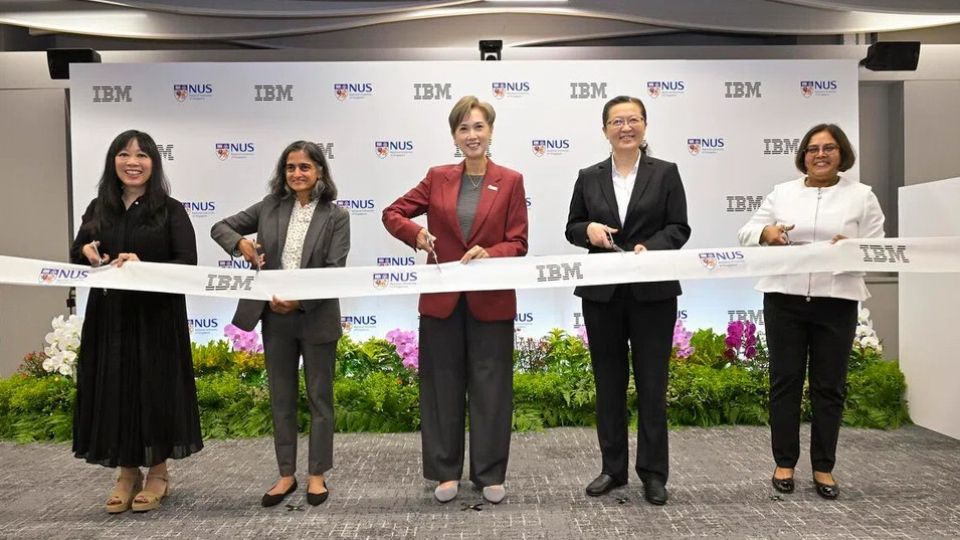October 24, 2025
SINGAPORE – A new AI centre in Singapore will use patented energy-efficient computer chips to create artificial intelligence models that can provide climate change predictions and aid in the deployment of emergency services to tackle disasters.
A collaboration between IBM and the National University of Singapore (NUS), the AI research and innovation centre will focus on making AI greener. It was launched on the sidelines of the IBM Quantum Summit APAC on Oct 23.
With the new centre, IBM’s full-stack AI infrastructure system – the entire spectrum of software and technology required to build, test and deploy an application – will for the first time be installed on a university campus in the Asia-Pacific region.
The infrastructure, which will be deployed at the NUS School of Computing by the first quarter of 2026, will include IBM’s Spyre chips, which are among the company’s Artificial Intelligence Unit (AIU) chips.
AIU is a new chip architecture designed specifically for AI workloads.
IBM has noted that such AI accelerator chips can be up to a thousand times more energy-efficient than the graphics processing units (GPUs) often used for AI.
“The AIU is built for sustainable AI – optimising throughput per watt, minimising movement of data, and delivering lower energy per inference,” said Professor Liu Bin, NUS deputy president for research and technology, during the launch.
“IBM and NUS will continue to co-develop AI applications with clear pathways that will benefit Singapore’s economy and society,” she added.
One focus of the centre is on developing “small, deployable, efficient models for the right domain”, said Ms Priya Nagpurkar, vice-president of hybrid cloud and AI platform at IBM Research.
These include geospatial models developed together with Nasa – which analyse phenomena on the earth’s surface – that have led to “a lot of exciting collaboration opportunities” in Singapore, she said.
Joint research will be conducted on the potential use of geospatial models for purposes such as sustainable urban development and regional agriculture, as well as weather forecasting.
Such geospatial models can also be used during disasters such as floods or forest fires, for example, to identify the fastest route for emergency services to access remote villages, said Mr Julian Tan, business development executive at IBM Quantum.
Prof Liu added that IBM and NUS will collaborate to create AI systems that can “adapt to real-world operational constraints”.
She also identified quantum computing – where the properties of subatomic particles are used to solve problems that are too complex for traditional computers – as another area where the new centre could contribute.
Minister for Digital Development and Information Josephine Teo, who attended the launch, said governments could help develop quantum computing by building sustainable talent pipelines and supporting the translation of research into scalable, commercially viable solutions.
“These are some of the reasons why Singapore committed an additional $300 million over five years under our National Quantum Strategy,” said Mrs Teo, noting the Republic had been building its quantum ecosystem for more than two decades.
On Oct 23, Chiang Mai University and IBM also signed an agreement to participate in the IBM-NUS Research and Innovation Centre.
The move aims to make AI more accessible and affordable in Thailand, with plans to develop AI-powered geospatial models to tackle issues such as natural disasters and air pollution.
Chiang Mai University also signed an agreement with the tech multinational to initiate joining the IBM Quantum Network, which is a collective of more than 100 organisations using IBM’s quantum hardware.
The university will be a member of the IBM Quantum Innovation Centre at NUS, providing it with cloud access to IBM quantum computers and resources for research and workforce development.


